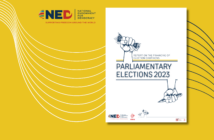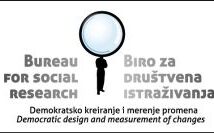“Due diligence in the public procurement procedure, which would enable a real assessment of the eligibility of bidders to participate in the tender, is significantly limited by legal solutions that oblige contracting authorities to only a superficial, formal inspection of persons and companies. Such legal framework already produces a practice that allows for the conclusion of contracts with persons/companies that do not substantially meet the tender conditions.”
Current Montenegrin Law on Public Procurement, which was passed on December 17, 2019, at the Sixth Sitting of the Second Ordinary Session of the Parliament of Montenegro, entered into force on July 1, 2020, and its implementation began only six months after its entry into force.[1]
The new law took over the anti-corruption provision from the previous law contained in Article 99, in the context of the Conditions of participation in a public procurement procedure and grounds for exclusion. Thus, the Mandatory conditions stipulate that “only a business entity which fulfils the following conditions shall participate in a public procurement procedure:
1) it has not been the subject of a conviction by final judgement, and the executive director of which has not been the subject of a conviction by final judgement for a criminal offence with the following elements:
- criminal association;
- creation of a criminal organisation;
- giving a bribe;
- receiving a bribe;
- giving a bribe in business operations;
- receiving a bribe in business operations;
- evasion of taxes and contributions;
- fraud;
- terrorism;
- terrorist financing;
- terrorist association;
- participation in foreign armed formations;
- money laundering;
- trafficking in human beings;
- trafficking in minors for adoption;
- slavery and transport of enslaved people;
In the process of participating in the tender, the interested entity confirms that it meets this requirement by obtaining a certificate from the competent Ministry of Justice, which refers to an extract from the criminal record, containing data on the (non) conviction of the person and/or company, and then submits it to within its bid.
- Complete report download HERE (PDF)



